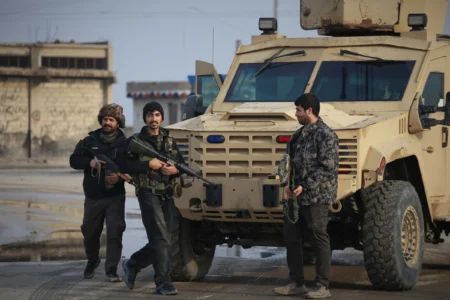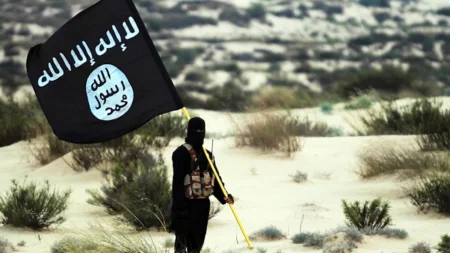The United Nations Secretary-General is facing strong criticism from several Western nations after speaking out against Israel’s actions in Gaza. His remarks have sparked diplomatic tensions, as the conflict continues to cause suffering for civilians in the region.
Meanwhile, U.S. President Donald Trump has announced that a ceasefire in Gaza could take effect as early as next week. He expressed sorrow over the humanitarian crisis and blamed Hamas for stealing relief supplies meant for the people of Gaza.
President Trump said, “We hope that a ceasefire will be in place by next week. People are dying. We are not part of the war, but we are helping for humanitarian reasons. Many people are not getting food. Though we have sent food and aid, some criminals are stealing it and selling it. Thankfully, we now have better management in place.”
He added, “It is sad that other countries are not doing anything. We are the only ones helping. From a humanitarian point of view, we have a duty to act.”
These remarks highlight the role the United States is playing in supporting Gaza’s civilians. Trump also made it clear that aid is being sent despite the conflict and challenges on the ground.
According to sources close to the situation, large shipments of food and financial aid have been sent to Gaza in recent weeks. However, a portion of these supplies did not reach the intended recipients due to reported interference and theft. This has made it difficult to meet the basic needs of the local population, many of whom are without food and clean water.
The United Nations has also continued to push for a peaceful resolution. But the Secretary-General’s criticism of Israel’s military actions has not been well received by Western countries, many of whom see Israel as a close ally. Some officials from these countries have suggested that the UN’s role should remain neutral and focus solely on humanitarian efforts rather than political judgments.
Despite this, the Secretary-General has not backed down from his position. He has repeatedly called for both sides to protect civilians and follow international law. He emphasized that the human suffering in Gaza must stop and urged the global community to increase support for aid efforts.
Observers note that political divisions are growing as international leaders take different positions on the conflict. Some governments, especially in the West, are reluctant to criticize Israel publicly. This has left the UN in a difficult position, trying to balance diplomacy with calls for justice and humanitarian aid.
The United Nations continues to coordinate aid deliveries, despite the challenges. Relief workers on the ground have reported that many families are living in overcrowded shelters and are in urgent need of food, medicine, and clean water. Children and elderly people are especially at risk.
The U.S. government has confirmed that it will continue to support relief operations in Gaza. Officials say they are monitoring the situation closely and are working with trusted partners to ensure that aid is delivered safely and fairly.
As the crisis unfolds, pressure is mounting on all sides to agree to a ceasefire. Human rights groups have urged both parties to end the violence and prioritize civilian lives. With talks ongoing behind the scenes, many are hopeful that a temporary truce could soon provide relief to the people of Gaza.
While political disagreements remain, the need for humanitarian aid is clear. Civilians trapped in the conflict zone continue to rely on international support. The coming week will be critical in determining whether peace talks can move forward and if aid can be delivered more effectively.







